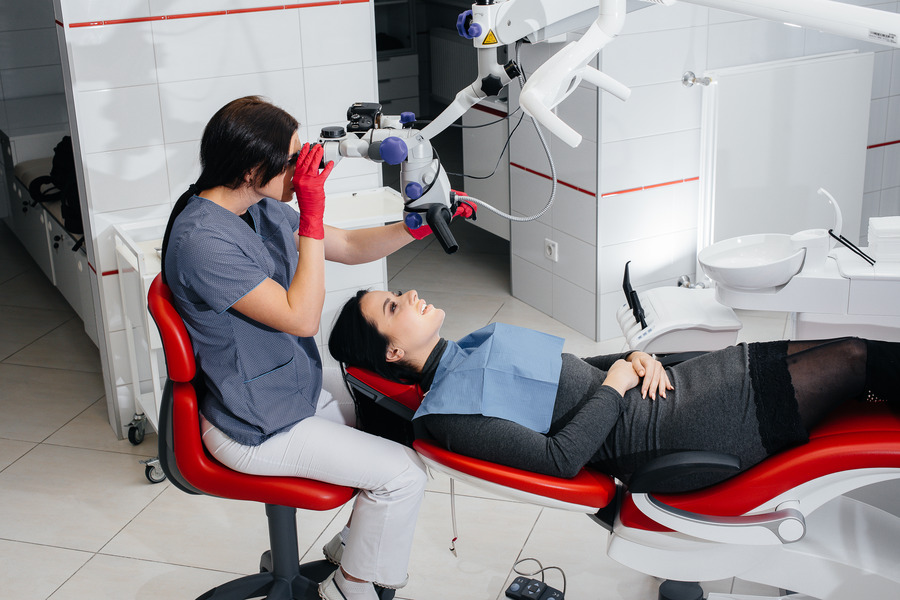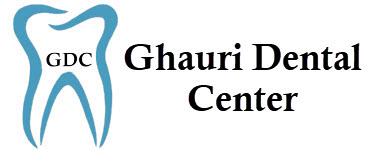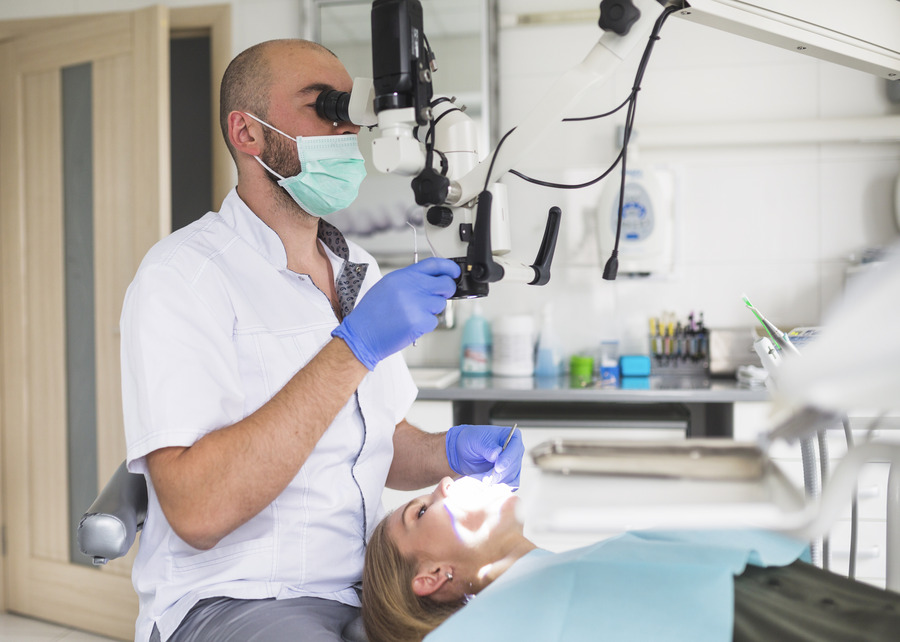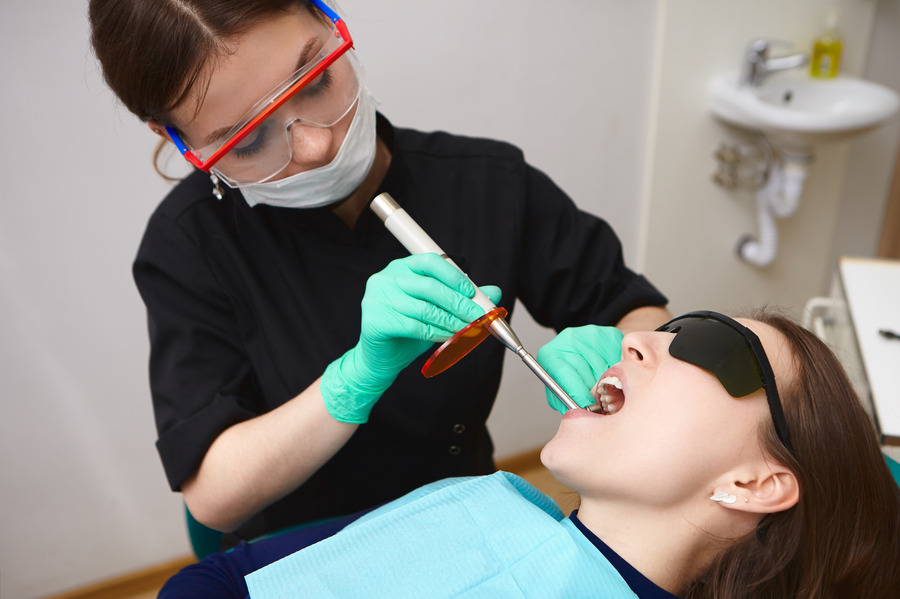General Dentistry
Everyone has experienced basic dentistry throughout their life. If you look back, you might probably have encountered a general dentist. General dentists provide teeth cleanings, checkups, and fillings when needed. They are the main dental care providers for people of all ages, and are dedicated to optimizing their oral health.


What is general dentistry?
General dentistry covers the diagnosis, prevention, and treatment of oral health conditions. This means general dentists perform routine checkups, examinations, cleanings, and restorations. They develop customized dental hygiene plans for their patients, including teeth cleaning, tooth scaling, and x-rays.
Disease prevention is crucial in general dentistry. Diagnostic equipment and regular checkups allow general dentists to detect and treat problems as early as possible. However, you may be referred to a specialist depending on your mouth condition.

How do general dentists differ from specialists?
Specialists focus on a specific area of dentistry. As a result, specialists bring a higher level of knowledge, expertise and skill to certain oral issues that fall within their specialties.

What qualifications do general dentists have?
General dentists complete an undergraduate education, followed by four years at an accredited dental school. Dentists also undergo special training in particular areas.
General Dentistry Services
Here are some of the most common general dentistry treatments
- Dental Exams
- X-Rays
- Cavity Fillings
- Fluoride Treatment
- Bridgework
- Custom Mouthguards
- Root Canal Treatment
- Teethwhitening
- Wisdom Tooth Removal
- Orthodontics (Braces And Clear Aligners)
- Teeth Cleanings
- Oral Cancer Screenings
- Inlays And Onlays
- Tooth Sealants
- Gingivitis Treatment
- Dentures
- Sleep Apnea Treatment
- Porcelain Veneers
- Tooth Extractions
- Temporomandibular Joint Disorder (TMD) Treatment
Preventative Services
General dentists prevent tooth decay and disease. This is achieved through regular exams, diagnostic X-rays, and professional teeth cleanings. Your general dentist will also screen you for oral cancer and may offer tooth sealants or fluoride treatments.
Without a doubt, your at-home dental hygiene regime plays a role in your oral health. As a result, general dentists also recommend ways to improve your dental habits at home, keeping your mouth happy and your smile bright.
For those who play sports or live an active lifestyle, prevention can also take the form of mouthguards. Custom mouthguards provided by your dentist are crucial for preventing tooth damage from sports.
Restoration Services
Restoration services include anything that restores your teeth’s look and function after damage, decay, or disease. Cavity fillings are one of the most common types of tooth restoration. If your dentist finds tooth decay during one of your appointments, it must be removed and a filling applied to the affected tooth.
Dental crowns (caps that fit over damaged or missing teeth), dental implants, and inlays and onlays (a type of dental filling) are other forms of restoration services designed to treat missing or damaged teeth. Additionally, some dentists also provide bridgework, orthodontics (braces and clear aligners), and denture fittings.
Cosmetic Services
The aim of cosmetic dentistry is to improve the appearance of your smile. A sparkling white smile has a huge impact on your confidence, and your dentist can help you achieve this. General dentists offer cosmetic procedures such as teeth whitening, porcelain veneers, and cosmetic bonding.
Over-the-counter teeth-whitening kits rarely deliver the desired results, and can damage your teeth in the process. As a result, you should always opt for professional teeth whitening provided by your general dentist.
Moreover, cosmetic services in dentistry focus on improving the appearance of teeth and gums that provides you improved self-esteem, attractiveness and better oral health.
Minor Oral Surgeries
General dentists can perform minor oral surgery. For example, you can receive wisdom teeth removal or tooth extraction without visiting a specialist. A general dentist can also provide root canal therapy, where infected or inflamed soft tissue is removed from the inside of a tooth. General dentist can do Frenectomy that is removing tissues connecting lip or tongue to the gums.
Additionally, general dentist can do dental Hemi section that is removing half of a damaged tooth, bone grafting on small scale and Root Amputation that is removing infected or damaged roots.
Children’s Dentistry
General dentists tend to focus on permanent teeth but treat children. Teeth cleanings, sealants, cavity fillings, dental radiographs, oral hygiene instruction and tooth removal can all be done by a general dentist.
Paediatric dentists are specialists and have an additional two years of training focusing exclusively on children’s dental care.
A general dentist can do infant oral exams, habit counseling, space maintainers to prevent space loss and can provide Fluoride Treatment. Fluoride helps prevent cavities and keeps primary tooth enamel strong.
How often should you see a general dentist?
It’s imperative to visit your general dentist at least every six months for a cleaning and examination. After all, regular dental checkups are an essential part of disease prevention. Many oral health conditions do not cause pain until they become severe.
Consequently, waiting until you have a toothache to visit your dentist is never a wise idea. If you have a toothache or notice something unusual, contact your dentist immediately.
Depending on your oral health, your dentist may recommend more frequent visits, such as every three months instead of twice a year. You should always follow your dentist’s preventative treatment schedule.
General Dentistry
Ghauri Dental Centre provides a wide range of general dentistry services to the patients. For example, we offer preventative, restorative, and cosmetic dentistry as well as children’s and senior’s dentistry.
Further advanced treatments include wisdom tooth extraction, root canal therapy, and orthodontics. No matter your age, Ghauri Dental Centre is here to help you maintain your oral health.
What causes bad breath?
While bad breath originates in the mouth 80% of the time, at other times it is a symptom of underlying disease which needs the earliest possible treatment.
Persistent bad breath is usually caused by the smelly gases of the bacteria that coats your teeth and gums. Smoking, garlic and onions can add to the problems. Certain illnesses such as diabetes, liver or kidney problems, nasal or stomach conditions and “dry mouth” (xerostomia) that affects the flow of saliva can be the cause of bad breath.
What is the treatment for bad breath?
Once we have determined the degree and cause of the breath problem, the treatment can take many forms. If medical problem are found to be the underlying cause of bad breath, proper referral will be made. Recommendation will be made by the dentist to correct and treat any dental disease that is directly related to the breath problem or gum disease.
Is bad breath a sign of gum disease?
Persistent bad breath or a bad taste in your mouth can be an indicator of gum disease and other oral diseases so it is important that you uncover what’s causing the problem. If constantly have bad breath, make an appointment to see your dentist. Regular checkups allow your dentist to detect any problems as your bad breath may be the sign of a medical disorder. If your dentist determines that your mouth is healthy, you may be referred to your primary care physician.
What is oral surgery?
Oral Surgery involves the diagnosis, management and sometimes surgical or medical treatment of conditions of the mouth and the adjacent and surrounding structures. Oral Surgery is closely related to Oral & Maxillofacial Surgery/Medicine.
Should I have my wisdom teeth removed?
Not all wisdom teeth need to be removed. However, in some cases, the arrival of these teeth can cause serious problems, resulting in pain, swelling, or infection. The most common problem we see is that there is often not enough room for the wisdom teeth to come through when this happens removal of impacted wisdom teeth is recommended.
What is the procedure for removal of wisdom teeth?
In most cases, wisdom teeth removal can be carried out under local anaesthetic to numb the tooth and surrounding area; meaning you may not need to be put to sleep for the procedure. Particularly nervous patients can speak to their oral surgeon about sedation prior to their appointment.
If your wisdom teeth have already come through, but you still need to be removed due to overcrowding, infection or decay, the extraction is often similar to that of a molar tooth.
However, impacted wisdom tooth removal is different. When a tooth has not yet come through, a very small cut must be made in the gum in order to access it. In some cases, a small piece of the bone may need to be removed if it is also covering the tooth.
Is having wisdom teeth removed painful?
Under the local anaesthetic, you won’t feel any sharp pains throughout the procedure. During the impacted wisdom tooth removal, however, you may feel some pressure as your oral surgeon widens the tooth socket by gently rocking the tooth back and forth. The pressure you feel is not great and it makes for a clean, quick and easy extraction.





